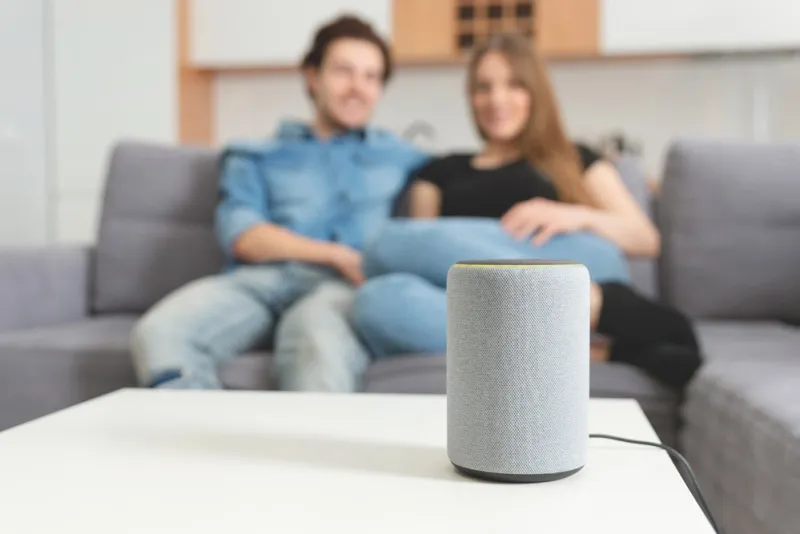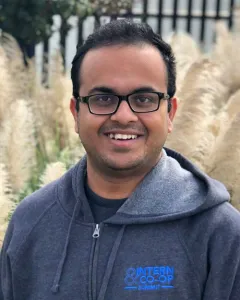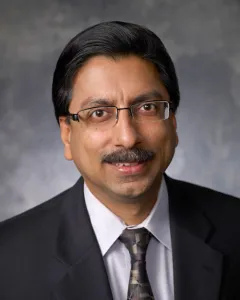Computer Scientists Enhance Alexa’s Small-Talk Skills

Amazon Alexa can give the weather forecast, play a requested song and set an alarm. But could the virtual assistant ever have humanlike conversations with users?
That’s the challenge for a University of Texas at Dallas team of computer science students competing in the Alexa Prize Socialbot Grand Challenge 4. The team is one of six from the U.S. and nine worldwide to be selected to participate in Amazon’s fourth annual contest to advance conversational artificial intelligence (AI).
The team’s socialbot skill is publicly accessible in the United States to anyone who says “Alexa, let’s chat” on their Alexa app or device. Users will not know which university’s socialbot they received.
The winning team will receive $500,000, and the students’ university could receive a $1 million research grant. The final competition will be held this summer, and winners will be announced in August. As a finalist, the UT Dallas team received a $250,000 research grant and technical resources.
“Virtual assistants are task-based. The question is: How can you make an AI friend who can have a discussion with you?” said Kinjal Basu, a computer science doctoral student in the Erik Jonsson School of Engineering and Computer Science who is leading the team. “The technology could be very useful for people who are suffering from anxiety and depression due to loneliness, for instance.”

Other potential applications could include greater accessibility for people who use assistive technologies and language translation, or for automating help desks and simplifying administrative tasks such as claims processing.
“Virtual assistants are task-based. The question is: How can you make an AI friend who can have a discussion with you? The technology could be very useful for people who are suffering from anxiety and depression due to loneliness, for instance.”
Kinjal Basu, a computer science doctoral student in the Erik Jonsson School of Engineering and Computer Science and CASPR team leader
Conversational AI combines technologies including natural language processing — a method of analyzing language — and machine learning, which applies algorithms to large data sets to recognize patterns and make predictions.
The UT Dallas team’s focus is to develop automated commonsense reasoning for Alexa, Basu said. Humans expect listeners to fill in certain gaps in conversation, make inferences and understand exceptions to rules, such as the fact that not all birds can fly. Humans also are able to understand a speaker’s intent or mood.
“Without this, you can’t get human intelligence,” Basu said.

The team’s name, CASPR, is an acronym for commonsense answer set programming reasoner, which refers to a form of programming that aims to address problems without well-defined answers, such as the type of open-ended questions that often come up in conversation.
The ultimate goal in the competition is to earn a composite score of at least 4.0 out of 5.0 possible points and have judges find that at least two-thirds of their conversations with the socialbot in the final round of judging remain coherent and engaging for 20 minutes.
“An Alexa socialbot is akin to meeting a stranger at a party and chitchatting with him or her for 20 minutes without them losing interest in you and walking away,” said Dr. Gopal Gupta, professor of computer science, the Erik Jonsson Chair and the team’s faculty advisor. Gupta, who is also co-director of the Center for Applied AI and Machine Learning, has taught a course focusing on commonsense reasoning for years.
Basu said he became interested in forming a team to enter the challenge while taking the course. The UT Dallas team also includes Huaduo Wang, computer engineering doctoral student; Sarat Chandra Varanasi, Fang Li and Xiangci Li, all computer science doctoral students; and Nancy Dominguez BS’15, computer science graduate student. Due to the COVID-19 pandemic, teammates are working together remotely.
The students are competing against teams from Czech Technical University in Prague; Emory University; Moscow Institute of Physics and Technology; Stanford University; University at Buffalo, The State University of New York; Technical University of Madrid; University of California, Santa Cruz; and the University of Southern California.
Source | UT Dallas News Center | Written By Kim Horner
ABOUT THE UT DALLAS COMPUTER SCIENCE DEPARTMENT
The UT Dallas Computer Science program is one of the largest Computer Science departments in the United States with over 3,600 bachelors-degree students, more than 800 master’s students, 160Ph.D. students, 51 tenure-track faculty members, and 44 full-time senior lecturers, as of Fall 2020. With the University of Texas at Dallas’ unique history of starting as a graduate institution first, the CS Department is built on a legacy of valuing innovative research and providing advanced training for software engineers and computer scientists.




